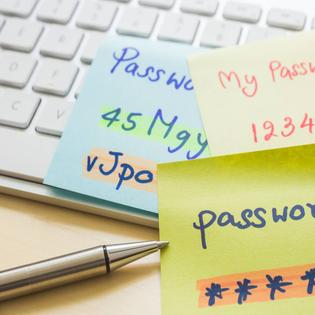Advertiser Disclosure
All About Cookies is an independent, advertising-supported website. Some of the offers that appear on this site are from third-party advertisers from which All About Cookies receives compensation. This compensation may impact how and where products appear on this site (including, for example, the order in which they appear).
All About Cookies does not include all financial or credit offers that might be available to consumers nor do we include all companies or all available products. Information is accurate as of the publishing date and has not been provided or endorsed by the advertiser.
Editorial Policy
The All About Cookies editorial team strives to provide accurate, in-depth information and reviews to help you, our reader, make online privacy decisions with confidence. Here's what you can expect from us:
- All About Cookies makes money when you click the links on our site to some of the products and offers that we mention. These partnerships do not influence our opinions or recommendations. Read more about how we make money.
- Partners are not able to review or request changes to our content except for compliance reasons.
- We aim to make sure everything on our site is up-to-date and accurate as of the publishing date, but we cannot guarantee we haven't missed something. It's your responsibility to double-check all information before making any decision. If you spot something that looks wrong, please let us know.
If you want to keep your most sensitive information secure and avoid scams like identity theft, you may want to get an authenticator app. If you want to guard against unauthorized users gaining access to your data, authenticator apps help strengthen passwords and protect against identity theft. You can use these apps on many different types of devices, like your iPhone or Android phone, to protect email, banking, and other account login information. Many of the best password managers support authenticator app access, too.
An authenticator app gives you an extra layer of security for your accounts. Rather than relying on a single password, you’ll have another authentication factor before you can access your accounts. With over 1 million reports of identity theft reported in 2021, you have every reason to look for better ways to stay secure online.[1]
Keep reading to learn about authenticator apps and how they work to decide if using one could benefit you.
When should I use an authenticator app?
How do I pick an authenticator app?
What’s the best authenticator app?
Authenticator app FAQs
Bottom line
What is an authenticator app?
An authenticator app is an application that usually gets installed on a smartphone or mobile device. The app generates a six- to eight-digit security key in a specific time window, usually 30 seconds. These codes are usually generated by an algorithm — the Google Authenticator app uses the Time-Based One Time Password Algorithm, or TOTP, to generate its codes. You can use the active code to log in to your email or other online accounts. Many companies require time-based authenticator apps for remote access to prevent hackers from stealing data.
Authenticator apps, like Google Authenticator, may also get referred to as two-factor authentication (2FA) or multi-factor authentication (MFA). That means it takes two different security measures to gain access to an account.
For instance, when you attempt to log in, you may need a password and the verification code that the authenticator app generates. The app will text the code to your mobile phone number. You’ll only have a limited amount of time to enter the code for access or you won’t be able to log in to the account.
That keeps accounts more secure because the code changes so often it would be hard for a hacker to guess. Two-step verification helps keep you safer from the chances of identity theft and hackers getting into your online accounts.
How do I set up an authenticator app?
The great thing about an authenticator app is how easy it is to set up and get connected. You can go to Google Play or the Apple App Store and find one that works for you. Also, Google and Microsoft have their own authenticator apps that can be used interchangeably.
Once you download the app to your device, you can look at your online accounts to see which ones support two-factor authentication and select the option to connect them to the app. Different accounts may have different methods to connect to the authenticator app.
After you choose the option to connect to the app, you’ll add the secure account to your authenticator app. The account website will send you a key or QR code to finish setting things up. A few steps are all it takes to give you that extra layer of security.
When should I use an authenticator app?
The primary reason for using an authenticator app is to keep your accounts secure. With so much malware created, phishing scams perpetrated, and hackers getting even smarter, using strong passwords may not be enough. When you want a simple, but functional way to keep your data safe, an authenticator app could be the way to do it.
If you have any online accounts that you want to keep more secure, you may want to consider using an authenticator app. Many people access their online banking apps and work email from their smartphones. Without an authenticator app, these accounts are easier to hack and access by strangers, and you could become a victim of identity theft.
When you use your authenticator app, you get about 30 seconds to key in a code or you can’t log into the account. It gives you peace of mind knowing there’s more than one layer of security to your most sensitive and private information.
How do I pick an authenticator app?
When looking for the right authenticator app, you want to look for the security features you need and a few extras you may want. It’s a good idea to look for an app created by a reliable company.
If you have a smartwatch, you may want to choose an app that connects to the watch. That gives you more convenience in case you don’t have your phone.
You also want to get the authenticator app that securely backs up your account in case you lose your device. Different apps are compatible with various platforms, so you’ll need to factor that into your decision.
Some apps allow you to lock the software. That way, even if someone else uses your phone, they can’t access your accounts or application codes. Similarly, some authenticator apps make sure all your data is encrypted and decrypted on your device, not through a third-party server. That puts an interference layer between you and a possible hacker.
What’s the best authenticator app?
There are many authenticator apps for you to choose from, so when it comes to the best, it depends on the options you want most. Many password managers, like NordPass, support the use of at least one of these authenticator apps. We’ve reviewed some of the most popular ones that have the crucial features you need with an authenticator app.
Microsoft Authenticator
The Microsoft Authenticator app provides a secure, easy login process for all your online accounts. It works on iOS and Android devices and stays current with bug fixes and performance improvements.
Google Authenticator
Available on iOS and Android, the Google Authenticator app provides a simple way to add two-step authentication to any account by generating a new six-digit code every 30 seconds. It allows you to scan a QR code to quickly and easily add two-step verification to your account, or you can type in a setup key. Also, you don't need a Google account to use it.
2FAS
2FAS is an authenticator that lets you add online accounts with a QR code or manually add them. You get the advantage of cloud backups for your Android or Apple device. The backup is also encrypted, and you can only access it from the 2FAS app.
LastPass Authenticator
LastPass offers an authenticator separate from the password manager available from the same company. You can use it synergistically with the password manager for even more security.
When you set up the authenticator app, you can create a backup of your accounts in your password vault. If you get a new phone, you can easily transfer your data from the vault.
Duo Mobile
Duo Mobile works on any smartphone, and you can configure more than one device to use it. You will have to configure each device separately, though, instead of synching to all of them at once. You also approve or deny access, so if a request comes that you didn't make, you can deny it.
Duo Mobile can be used with an Apple Watch, but not Android smartwatches. You can, however, approve or deny requests using the notification feature on your Android watch.
Authenticator app FAQs
Do I need an authenticator app?
An authenticator app helps you to improve your online security by adding two-factor logins to any accounts you connect to the authenticator. This makes it harder for hackers to access your accounts, so we highly recommend using an authenticator app and two-factor authentication.
What’s the easiest authenticator to use?
Some of our favorite authenticator apps are also easy to use, including Google Authenticator (iOS / Android), Microsoft Authenticator, and LastPass Authenticator. These also happen to be some of the safest authenticator apps.
Can an authenticator be hacked?
A time-based passcode generated by an authenticator app is harder to hack than an SMS text message, but that doesn't mean an authenticator app can't be hacked — especially if it generates codes that allow you to log into your accounts. A safer option is a two-factor authentication method where an Allow or Deny request pops up on your device. To hack this type of authentication method, a cybercriminal would need to physically access your device.
Bottom line
An authenticator app is a great way to get that extra layer of security for all your online accounts. Rather than relying on passwords alone, you get an app that generates one-time passwords that expire within approximately 30 seconds. If an unauthorized person gets the code later, it won’t work.
Using authenticator apps makes it almost impossible for hackers to access your accounts. By installing these apps, you give yourself more safety online. In our world of technological advancement, you need to be as stealthy as the scammers who want to breach your data.
If you want to know more about protecting your online accounts, you can read our NordPass review to learn about its multi-factor authentication options, strong encryption and security, and more.
-
Strong encryption and security
-
User-friendly interface
-
Free version is limited to one device at a time





